
Regenerative Agriculture Technical Assistance Provider (TAP) Certification Program

California is the nation’s leading agricultural producer by total receipts, generating over $50 billion in 2019, far exceeding the number two leading state of Iowa ($27.5 billion). By sheer size and productivity, California has significant potential to contribute to working lands conservation efforts.
However, climate change, diminishing soil health, low implementation of conservation efforts, and lack of knowledge and/or access to information, training, and assistance with systems-based agricultural management have left us less resilient and more vulnerable to economic and environmental threats.
CRARS has developed the Regenerative Agriculture Technical Assistance Provider (TAP) Certification Program to support the expansion of systems-based farm, ranch, and forest management practices on California working lands, and foster conversation and innovative, collaborative strategies to address current and future threats and opportunities for California agricultural production.
If you are looking to refresh your knowledge with the most current information and research on regenerative agriculture, are already a conservation planner or hoping to become a conservation planner, this program could be valuable for you. With a TAP certificate from CRARS, you will be able to act as a conservation planner for several USDA programs, including RCPP and Climate Smart Commodities, state programs, including CDFA HSP, and private organizations interested in funding different types of conservation plans, such as carbon farm plans.
As the need for progressive on-farm planning continues to grow, so too will the need for planners with the most up-to-date knowledge and resources. The need for planners at state, federal and private organizations is growing by the day, and employment opportunities for planners are expected to continue expanding for the foreseeable future. We have also been able to integrate various pieces of NRCS’s Technical Service Provider (TSP) certification program into our TAP program, allowing CRARS graduates to seamlessly continue on to earn TSP certification from NRCS if desired. As an NRCS TSP, a producer can pay you directly to be a planner and be reimbursed by NRCS, opening an additional door of opportunity for planners.
CRARS Online Professional TAP Courses (not NRCS)
This series of professional development classes, offered through Chico State Professional & Continuing Education (PCE)(opens in new window), provides the backbone for the Certification program. They are also available to be taken singly for continuing education purposes by current agricultural professionals and by farmers, producers and members of the public with an agriculture background.
Priority will be given to individuals seeking to complete the entire TAP Certification program (3 required courses and 1 elective). Though the courses are not sequential, we do recommend beginning with course #1 as a foundation for future learning.
Space may be available on a case by case basis for individuals interested in taking one or more courses for exploratory purposes. Please contact program manager Lindsey Hethcote(opens in new window) for more information on taking exploratory courses.
These courses are intended for agricultural and conservation professionals and planners, and people with an agricultural background seeking TAP certification or continuing education credits from select organizations. Although these courses are open to the general public, they are not intended for beginners seeking introductory courses on regenerative agriculture.
For those seeking hands-on experience with conservation practice implementation, a series of in-person offerings will be available soon in Chico, CA. These online courses provide very in-depth knowledge on the importance and use of conservation practices, but do not necessarily cover specifications for implementation. However, these courses can be used as a great precursor to the future implementation courses that will be offered.
Ag Professionals, please note: there may be partial scholarships available for people choosing to be in this program if you live in California and meet other eligibility requirements. If you’re interested in applying, click this link(opens in new window) before registering for the first course (no later than August 7th.) You will need to be pre-approved and receive a registration code before registering for classes. (Don't delay!) Priority for scholarships will be given to those seeking the full TAP certification.
Those taking this course series as part of our Technical Assistance Provider Certification program are required to take these first three classes plus 1 elective.
- Regenerative Agriculture Systems: Theory & Practice
- Introduction to Soil Health Management
- Whole Farm/Ranch Planning & Design
And 1 elective chosen from the following choices:
- Ecological Range Management & Adaptive Grazing
- Pollinator Habitat
- Regenerative Forestry
- Carbon Farm Planning
Course Structure:
- Fully online for flexibility and convenience.
- Lectures and coursework (6-8 hours per week) completed at your own time and pace.
- Weekly 1-2 hour live-online discussions with participants and faculty.
- Pass/No Pass quizzes to gauge your mastery of the content.
- Certificate of completion given at the end of each course.
Fee: $650 per 6-week course, shorter courses TBA
CEUs are currently available from the following organizations:
Society for Ecological Restoration(opens in new window):
- Regenerative Agriculture Systems: Systems Theory and Practice (10 CEUs)
- Ecological Range Management and Adaptive Grazing (10 CEUs)
- Introduction to Soil Health Management (10 CEUs)
- Whole Farm/Ranch Planning and Design (10 CEUs)
- Pollinator Habitat (10 CEUs)
- Regenerative Forestry (10 CEUs)
Certified Crop Advisors(opens in new window):
- Regenerative Agriculture Systems: Systems Theory and Practice (24 CEU’s total in various categories: 9 CEUs in Soil and Water Management, 3.5 CEUs in Sustainability, 4 CEUs in Nutrient Management, 2 CEUs in Integrated Pest Management, 4.5 CEUs in Crop Management and 1 CEU in Manure Management.
Society for Range Management(opens in new window):
- Ecological Range Management and Adaptive Grazing (16 CEUs)
Natural Resource Conservation Service (NRCS)(opens in new window)
- Carbon Farm Planning (15 CEUs)
The Society of American Foresters(opens in new window)
- Regenerative Forestry (32 CEUs)
The Wildlife Society(opens in new window)
- Regenerative Agriculture Systems: Systems Theory and Practice course (36 CEUs)
- Regenerative Forestry (12 CEUs)
 Course Dates: Six weeks, August 15 - September 22, 2023
Course Dates: Six weeks, August 15 - September 22, 2023
Registration Deadline: August 11, 2023
48 hrs CE
Faculty: Dr. Cynthia Daley [Bio(opens in new window)]
An introduction to management approaches that focus on the interactions and synergies of ecosystem processes (energy flow, water and nutrient cycles, and community dynamics) to leverage the power of photosynthesis to improve water use efficiency and soil health across a variety of agro-ecosystems using appropriate production practices.
Topics Include:
- Introduction to systems management: challenging paradigms.
- Processes and principles: Introduction to agroecosystems and soil health.
- Minimizing soil disturbance: no-till, strip-till and more.
- The benefits of biomass: cover crops and crop rotation.
- Biological applications: the link between soil, plants, and animals.
- Annual cropping systems (row crop; pasture).
- Perennial cropping systems (rangelands; orchards; vineyards).
- Incorporating and managing livestock through adaptive planned grazing.
- Agroforestry systems (timber and grazing).
- Economic view of systems management: short- and long-term ROI
- Conservation through partnerships: opportunities and engaging effectively
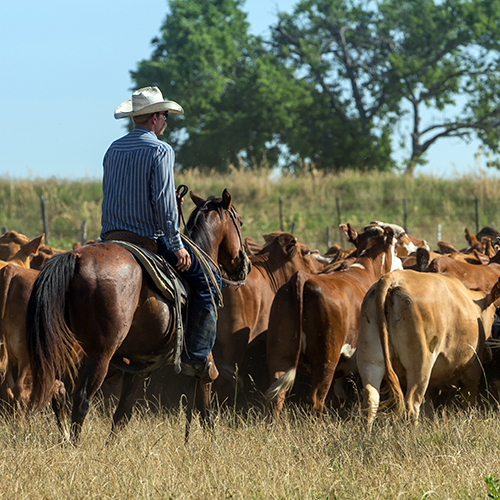 Course Dates: Six weeks, October 10 - November 17, 2023
Course Dates: Six weeks, October 10 - November 17, 2023
Registration Deadline:October 3, 2023
48 hrs CE
Faculty: Wendell Gilgert M.S. [Bio(opens in new window)]
This course will address whole ranch and grazing management planning and design with a focus on climate smart/regenerative practice implementation and assessment. We will explore Key concepts include the Holistic Management (HMI or Savory) and the Nine Step Conservation Planning Process from NRCS.
Topics Include:
- Prehistoric and historic herbivory in California.
- Resource assessments (walking/reading the land).
- Enhancing land doctoring skills.
- Grazing management strategies.
- Ranch conservation planning.
- Grazing management plans.
- Transition to new grazing strategy.
- Multi-species grazing.
 Course Dates: Six weeks, January 9 - February 16, 2024
Course Dates: Six weeks, January 9 - February 16, 2024
Registration Deadline: January 2, 2024
48 hrs CE
Faculty: Dr. Garrett Liles [Bio(opens in new window)]
Understand the connection between soil health and primary productivity and, ultimately, food and fiber quality. This course will cover soil properties, metrics of soil health, and influences of production practices and soil management systems (integrated practices) on these components. Soil sampling, analysis and interpretation are presented, along with monitoring strategies to ensure on-farm success.
Topics Include:
- Basics of soil health: degradation and restoration.
- Organic matter: the living, the dead, and the very dead part of soil.
- Physical nature of soils: the what, where, and how of soil formation and loss.
- Soils and plants: biological, chemical, and physical property influences on plant health.
- Nutrient management: considering source, rate, time, and place when using livestock and plant waste to build soil health.
- Irrigation technology and management strategies.
- Soil testing and monitoring: what and when.
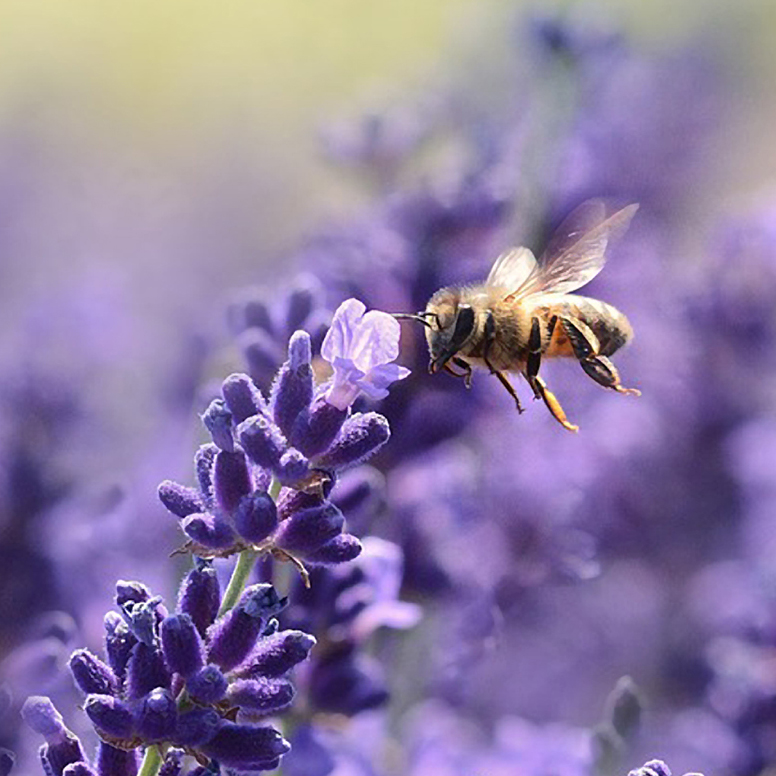 Course Dates: Four weeks, February 27 - March 22, 2024
Course Dates: Four weeks, February 27 - March 22, 2024
Registration Deadline: February 20, 2024
32 hrs CE
Faculty: Dr. Elizabeth (Betsy) Boyd(opens in new window)
This will be a course that explores agricultural practices that enhance pollination services by native pollinators and honeybees. It will include the importance of establishing pollinator habitat and hedgerows, use of pollinator-friendly cover crops, choosing plants, and other pollinator-friendly practices.
 Course Dates: Four weeks, April 1- April 26, 2024
Course Dates: Four weeks, April 1- April 26, 2024
Registration Deadline: March 28, 2024
32 hrs CE
Faculty: Dr. Cindy Prescott(opens in new window)
The aim of regenerative forestry is to promote the abundance diversity and functioning of soil life that contributes to producing resilient forests. This can be accomplished through practices that promote the flux of carbon from plants to the belowground ecosystem. In this course we will cover our current understanding of the diversity of life belowground in forest and the fluxes of plant carbon to the belowground ecosystem, and explore how forestry practices could be adapted to promote soil biodiversity and function.
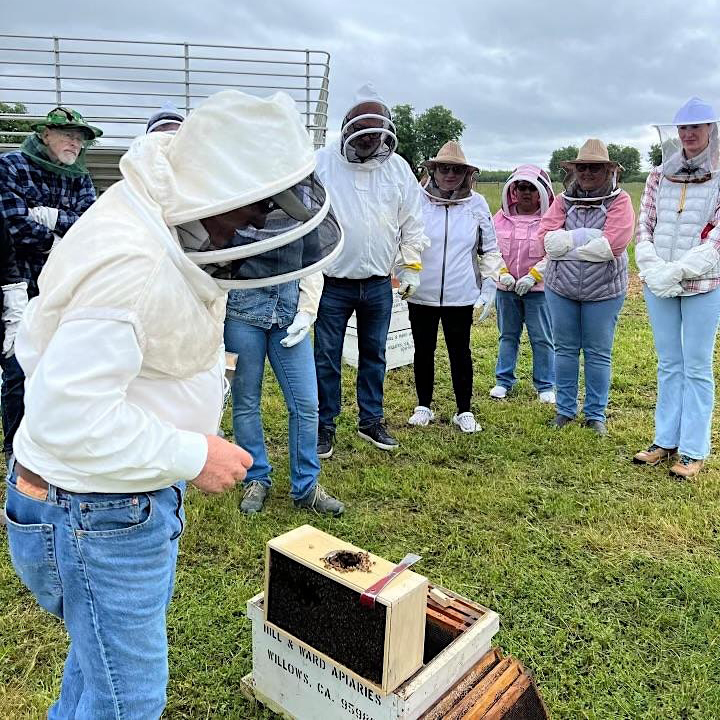 Course Date: Saturday, May 04, 2024 from 8:00 AM - 12:00 PM.
Course Date: Saturday, May 04, 2024 from 8:00 AM - 12:00 PM.
Registration Deadline: April 26, 2024, Class size is limited to 30.
Faculty: Kevin Ward, a beekeeper with a lifetime of experience managing beehives and keeping bees for pollination, queen rearing, and honey productionand. He'll be joined by a guest speaker with expertise in keeping hives healthy.
Learn about the fascinating world of beekeeping. Whether you're a beginner or looking for advice on an existing hive, this event is perfect for you. Come and discover the basics of setting up your own hive, caring for bees, and harvesting honey as well as the importance of honeybees in our ecosystem.
Please bring your own veil! You can dress in what you are comfortable wearing around bees, this can be a bee suit, bee jacket or long sleeved shirt and pants.
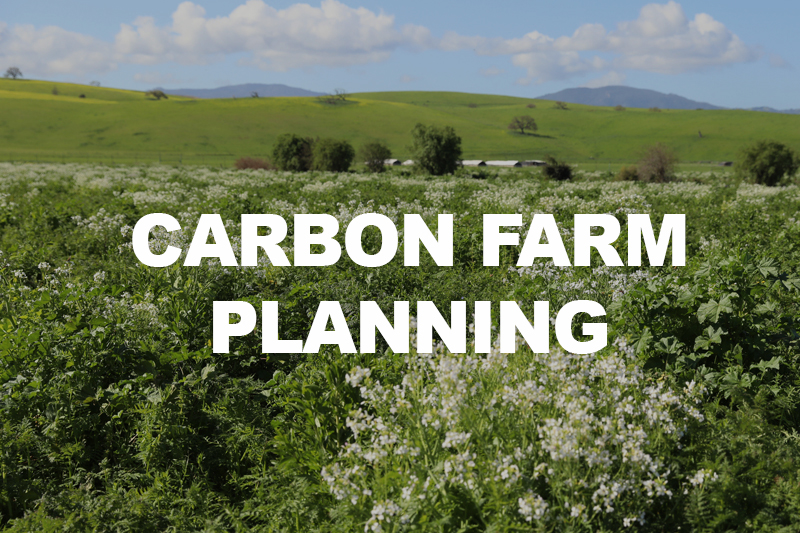 Course Dates: Four weeks, May 6- May 31, 2024
Course Dates: Four weeks, May 6- May 31, 2024
Registration Deadline: TBA
32 hrs CE
Faculty: Carbon Cycle Institute
Description:
To meet the growing demand for training of technical service providers to assist producers in carbon farm planning CCI works with the Colorado State University COMET team(opens in new window) to develop an on-line, multi-module carbon farm planning education Curriculum designed to be paired with a guided training with the CCI Staff.
Carbon Farming is a whole farm approach to optimizing carbon capture on working landscapes by implementing practices that are known to improve the rate at which CO2 is removed from the atmosphere and stored in plant material and/or soil organic matter. Carbon Farming is a framework for engaging with the agroecosystem processes that drive system change. Carbon farming explicitly recognizes that it is solar energy that drives farm ecosystem dynamics and that carbon is the carrier of that energy within the farm system. Carbon farming is synonymous with the term ”regenerative agriculture” when that term refers to the underlying system dynamics and feedback processes that make a “regenerative” upward spiral of soil fertility and farm productivity possible.
 Course Dates: Six weeks, June 18- July 23, 2024
Course Dates: Six weeks, June 18- July 23, 2024
Registration Deadline: June 10, 2024
48 hrs CE+
Faculty: Dr. Cynthia Daley and Lindsey Hethcote
This course supports the transitional process to a plan, implement, monitor, replan management framework that encourages producers and ag professionals to work through a systems lens that addresses economic success and improved land health. Participants will develop a vision that incorporates management goals, establish a land management plan, and identify metrics to quantify outcomes and reassess their plan annually.
Topics Include:
- Managing complex systems: establishing context to set goals with a vision.
- Farm/ranch assessment: resources and inventories from the ground up.
- Tools for enhancing resources within agroecosystems: a review of conservation practices and conservation effects.
- Whole farm/ranch planning: enhancing resources and meeting goals.
- The decision-making process: putting a conservation plan into action.
- The carbon lens: evaluating a farm/ranch plan for GHG reduction and co-benefits.
- Economic evaluation of farm/ranch plan.
- Monitoring for adaptive management.
1. Concentration 1 - Grazing Management Plan - TSP NRCS Certification
2. Concentration 2 - Soil Health Management Planning- TSP NRCS Certification
3. Concentration 3 - Pollinator Habitat Planning & Design- TSP NRCS Certification
4. Concentration 4 - Carbon Sequestration & GHG Mitigation - TSP NRCS Certification
*All concentrations will also learn the process for becoming NRCS certified Technical Service Providers (TSPs) and Conservation Planners and will be on their way to certification. To be a NRCS certified TSP or Conservation Planner, participants will have to take additional steps after course 7 finishes in order to complete NRCS certification. CRARS will work to facilitate communication between NRCS and CRARS graduates to help ensure NRCS certification is attained if that is the goal.
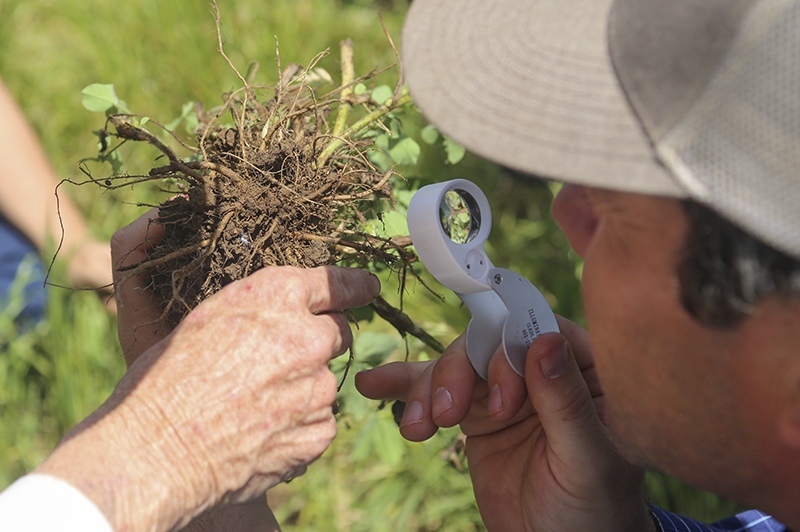 Classes that can be taken singly for continuing education units or professional development. You will also find programs by other organizations here.
Classes that can be taken singly for continuing education units or professional development. You will also find programs by other organizations here.
